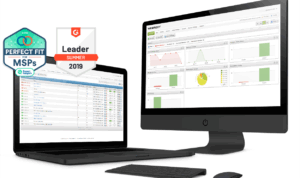Best help desk software stands as a vital tool in today’s fast-paced digital landscape, streamlining customer support and enhancing user satisfaction. As businesses strive to establish deeper connections with their customers, the right help desk solution can make all the difference. With the power of efficient ticket management, multi-channel communication, and insightful analytics, organizations can not only resolve issues faster but also foster long-term relationships with their clientele.
In this exploration of help desk software, we’ll dive into its features, benefits, and the reasons why investing in the best options available can elevate your customer service strategy. Whether you’re a small business or a large enterprise, the best help desk software can transform the way you interact with customers and manage support requests, ensuring you are always one step ahead.

In the ever-evolving landscape of technology, one cannot overlook the profound impact that artificial intelligence (AI) has had on various sectors. From healthcare to finance, AI has not only transformed how businesses operate but has also reshaped our daily lives. In this article, we will delve into the multifaceted world of AI, exploring its applications, benefits, challenges, and the future it holds.To begin with, let’s examine what AI truly is.
Artificial intelligence refers to the simulation of human intelligence in machines that are programmed to think and learn like humans. These systems can perform tasks that typically require human intelligence, such as visual perception, speech recognition, decision-making, and language translation. The development of AI has been a gradual process, advancing through various stages, including rule-based systems, machine learning, and deep learning.One of the most prominent applications of AI can be found in the healthcare sector.
With the ability to analyze vast amounts of data, AI systems can assist in diagnosing diseases, predicting patient outcomes, and personalizing treatment plans. For instance, machine learning algorithms can examine medical images to detect anomalies that may be missed by the human eye. Furthermore, AI-driven tools can analyze genetic information to determine the best course of treatment for individual patients, paving the way for precision medicine.The financial industry has also embraced AI, utilizing it to enhance customer service, improve risk assessment, and streamline operations.
Chatbots powered by AI provide customers with instant support, answering queries and resolving issues around the clock. Additionally, AI algorithms analyze market trends and patterns, enabling traders to make informed decisions based on real-time data. This not only enhances efficiency but also reduces the likelihood of human error.Moreover, the retail sector has experienced a significant transformation thanks to AI. Retailers leverage AI to personalize shopping experiences, optimize inventory management, and enhance supply chain operations.
Through data analysis, businesses can gain insights into consumer behavior, tailoring their offerings to meet customer demands. For example, recommendation systems suggest products based on previous purchases, creating a more engaging shopping experience that can boost sales and customer loyalty.However, the rise of AI is not without its challenges. One of the foremost concerns is the ethical implications surrounding its use.
As AI systems become more autonomous, questions arise about accountability and the potential for bias in decision-making. For instance, if an AI algorithm in hiring practices exhibits bias against certain demographic groups, it could perpetuate inequality in the workplace. Therefore, it is crucial for organizations to implement ethical guidelines and ensure transparency in AI applications.Another significant challenge is the potential impact of AI on employment.
As machines take over routine tasks, there is a growing fear that job displacement will occur. While AI can enhance productivity and create new job opportunities, it also necessitates a shift in workforce skills. Upskilling and reskilling initiatives will be essential to prepare employees for the changing landscape and mitigate the negative effects of automation.Looking ahead, the future of AI holds immense potential.
As advancements continue, we can expect to see more sophisticated AI systems capable of performing complex tasks that were once thought to be the exclusive domain of humans. The integration of AI with other emerging technologies, such as the Internet of Things (IoT) and blockchain, will further amplify its capabilities. For example, AI can analyze data collected from IoT devices to optimize processes in smart cities, improving energy efficiency, traffic management, and public safety.Moreover, the role of AI in combating global challenges cannot be underestimated.
From addressing climate change to improving food security, AI can provide innovative solutions to pressing issues. Machine learning models can analyze environmental data to predict weather patterns, aiding in disaster response and resource management. In agriculture, AI-powered tools can optimize crop yields by analyzing soil conditions and weather forecasts, contributing to sustainable farming practices.In conclusion, artificial intelligence is not just a buzzword; it is a transformative force reshaping industries and our daily lives.

Its applications are vast, offering numerous benefits while also presenting challenges that must be addressed. As we navigate this exciting frontier, it is crucial to embrace AI responsibly, ensuring that its development and implementation align with ethical standards and societal needs. The journey of AI is just beginning, and its potential to create a better future is limited only by our imagination and commitment to harnessing its capabilities for the greater good.
Commonly Asked Questions
What is help desk software?
Help desk software is a tool designed to assist organizations in managing customer inquiries and support requests efficiently. It centralizes communication and streamlines issue resolution processes.
How does help desk software improve customer support?
It enhances customer support by providing features like ticket management, automated responses, knowledge bases, and multi-channel communication, enabling faster and more effective resolutions.
Can help desk software integrate with other tools?
Yes, most help desk software solutions offer integrations with various tools such as CRM systems, email marketing platforms, and collaboration software to create a seamless workflow.
What features should I look for in help desk software?
Key features to consider include ticket management, reporting and analytics, multi-channel support, automation capabilities, and customization options to fit your business needs.

Is help desk software suitable for small businesses?
Absolutely! Many help desk software options are tailored for small businesses, providing affordable and scalable solutions to enhance customer support without overwhelming resources.



























